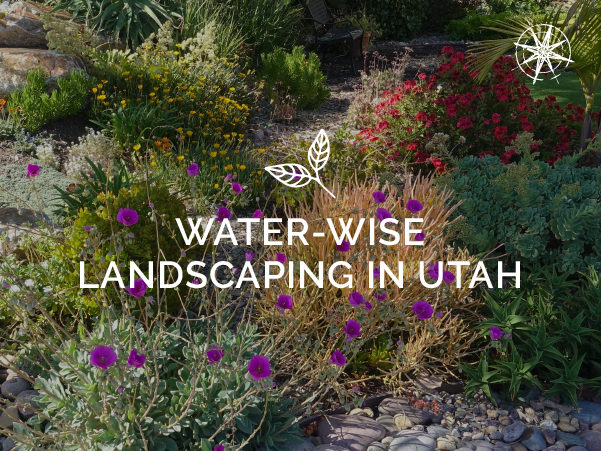
Water-Wise Landscaping for a Sustainable Utah
Water-smart Development Benefits the Environment, Developers, and Property Owners
From the snowcapped mountains of the north to the deserts of the south, Utah is widely known for its diverse and beautiful landscapes. Not as widely known, Utah is the second driest state in the nation. With rapid expansion and growth occurring statewide, Utah’s arid climate poses significant challenges in terms of water conservation. In an effort to preserve this precious resource, FOCUS implements water-wise landscaping into each of its designs.
Water-Wise Landscaping: A Necessity, Not a Trend
Water-wise landscaping is not just a trend; it’s a necessity for Utah’s sustainability, and Utahns are starting to recognize this. A recent survey conducted by Salt Lake County found citizens consider water conservation equally important to affordable housing and air quality when it comes to their top areas of concern. Providing professional design s that reduce the amount of water used in both residential and commercial properties is a priority at FOCUS.
The FOCUS Approach to Water-Wise Design
According to Bryan Wilson, a FOCUS landscape designer, water-wise landscaping takes advantage of the varying conditions and microclimates in every landscape. “In order for a landscape to be sustainable within our Utah desert environment, the selection of native or adapted water-wise plant species is a must,” states Bryan. The FOCUS landscape architecture team works to incorporate a variety of low-water-use shrubs, succulents, perennials, and native grasses into their work. This approach intentionally creates beautiful spaces that use much less water than turf grass and are better alternatives to barren rock beds, which are not typically as aesthetically appealing and lead to higher surface temperatures.
Environmental Benefits of Water-Smart Development
By using water-wise practices, FOCUS helps to conserve this vital resource for future generations. Less water usage translates to reduced strain on local water supplies and less stress on ecosystems that rely on healthy water flow.
Economic Advantages for Developers and Property Owners
Water-wise landscaping isn’t just good for the environment, it’s also smart economics. Developers can benefit from financial incentives and rebates offered by municipalities for incorporating water-saving features into their projects. Property owners enjoy lower water bills and landscapes that require less maintenance.
Utilizing Efficient Irrigation Systems
Always conscious of the amount of water we are providing in the landscape, a water-saving technique the FOCUS team has adopted is to specify automatic drip irrigation systems with smart controllers in its irrigation designs. “Drip irrigation delivers water directly to the main roots of each plant. There is little to no waste of water using this method,” states Bryan. “Most of us have witnessed a broken sprinkler head watering sidewalks and roadways before. Unlike a drip irrigation system, this is a complete waste of our water.”
Grading and Balancing for Water Retention
Another approach FOCUS architectural designers take is to work closely with in-house engineers, who provide valuable input regarding grading and balancing on a project site to maximize run-off to benefit the landscape. The team is constantly working to provide new and effective ways to ensure we are helping Utah conserve our most important natural resource through water-wise landscape design. Implementing these water-saving techniques as a part of a project’s planting & irrigation plans can benefit everyone involved and beyond.
Benefits Beyond Water Conservation
Water-wise landscapes offer a variety of benefits beyond water conservation. They can create wildlife habitat, reduce heat island effects, and improve air quality. By choosing water-wise landscaping, you’re not just making a smart investment for your property, you’re making a positive impact on your community and the environment.

Leave a comment
You must be logged in to post a comment.